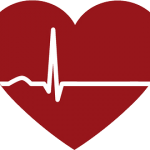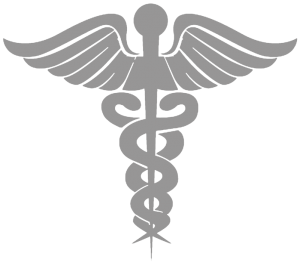In order to recover from a drug addiction issue, people who use drugs must stop doing so, and they must make the same choice each and every day. It sounds simple enough, but often, it’s that first step on the road to recovery that is so difficult for addicts to complete.
Specifically, many people struggle in the days that immediately follow the decision to get sober. During this withdrawal process, the help of experts in a drug detox program can be absolutely vital.
Related Content
-

Inpatient Facilities
-

Cocaine Detox
-

Signs of Overdose
-

Alcohol Detox
-

Withdrawal Timeline
Dependence Basics
People who use and abuse drugs may feel as though they’re impaired for mere minutes at a stretch. They take drugs, they feel a change, the sensation fades, and they’re restored to normalcy. In reality, drugs tend to leave a significant amount of damage in their wake, tinkering with specific chemical pathways and altering the chemical makeup of brain cells. In time, as the changes add up, the brain is primed for the use of drugs, and the damage becomes clear when the addict attempts to get sober and withdrawal takes over.

Often, these symptoms last for just a few days, but the misery can be so intense that people return to drug use in order to find some kind of relief. Heroin is often associated with serious forms of withdrawal, as the flu-like symptoms people experience tend to spark a return to drug use. However, heroin and other opiates aren’t responsible for the most serious cases of withdrawal. That particular designation is shared between alcohol and benzodiazepines.
These sedating drugs tend to slow the electrical activity in the brain to such a degree that the cells seem to burst into flame when the drugs are removed. Hallucinations can ensue, as can seizures. It’s a rare occurrence, according to an article in JAMA, and less than 1 percent of people die during the process. But perhaps people remain safe during withdrawal simply because most people get help in a formal detox program for addiction. Here, they can get the help they need to make the transition smoothly.
The symptoms people face during this time are dependent on the drugs they took, but common symptoms include:
- Nausea
- Diarrhea
- Anxiety
- Fatigue
- Insomnia
- Shaking
- Sweating
- Chills
- Running nose
- Watering eyes
- Inability concentrate
- Depression
- Deep cravings for drugs
Choosing Detox
People addicted to alcohol or benzodiazepines simply must enroll in a formal treatment program, as their substances are associated with such severe complications during recovery. But even people addicted to heroin or prescription painkillers might opt for detox, as might people who are addicted to marijuana, crystal methamphetamine, cocaine and other drugs that are associated with withdrawal discomfort.
A study in The British Journal of Psychiatry demonstrates the value of a formal inpatient detox program quite well. Here, the researchers studied the relapse rates of opiate addicts attempting to recover in an outpatient detox program. Here, they found that 40 percent relapsed within a period of weeks, mostly due to the high-risk situations they encountered, such as:
- Interactions with other drug users
- Being provided with drugs
- Feeling low and sad
- Walking into places in which drugs were in use
A drug detox program, particularly one that provides inpatient care, can amend these concerns. People don’t leave the grounds, so they can’t run into others who are using, and people may have the opportunity to speak with counselors about their feelings and avoid the low moods that can trigger a relapse.
In addition, medications can sometimes be used to soothe the distress people feel during detox. Over-the-counter medications are often surprisingly helpful in amending gastrointestinal distress, but sometimes, people find that prescription medications can help them to sleep better and feel better overall. In some cases, medications might even be used to reduce the cravings people feel for drugs. In an at-home program, people might not have access to these medications, and they might certainly find it hard to avoid their former drug-using friends and family members. An in-house detox might be superior for them.

Medically Managed Withdrawals
Many of the symptoms of withdrawal can be managed with medication. Known as “medically managed withdrawal,” this process must be conducted by professionals in a supervised inpatient or outpatient setting. However, with the right medications, it is possible to mitigate many of the symptoms, such as nausea, fever or anxiety.
Some providers may prescribe sleeping medications for the most severe cases where the cravings for the drugs threaten to derail any attempts at detoxification. The types of medications prescribed will depend upon the type of withdrawal, based upon the drug classification of the addiction.
Medical Support
Medical intervention and support are among the ways that a detoxification facility helps to ease the withdrawal symptoms that can contribute to relapse. Withdrawal symptoms can be severe. In the case of long-term alcohol use, withdrawal can include such extreme symptoms as seizures and delirium tremens. Other drugs, prescription and street, can result in hallucinations, erratic heart beat and blood pressure, and numerous other symptoms. The types of medical support that a detoxification facility offers includes:
- Careful monitoring of vital statistics to ensure client safety.
- Pharmaceutical support to ease withdrawal symptoms. In some cases, this involves the use of medications that mimic the abused substance in decreasing doses. For example, Valium is used sometimes to ease the withdrawals from barbiturate use.
- Pharmaceutical-based treatment of withdrawal symptoms. In this approach, instead of preventing the worst of the withdrawal symptoms by mimicking the substance and gradually reducing medication, specific withdrawal symptoms are managed with medication, reducing significantly the discomfort of abstinence from the abused substance. For example, an alcoholic undergoing detox may receive Lorazepam for delirium tremens.
- Skilled and continuous assessment of medical needs during the detoxification process, and rock solid procedures for dealing with any sort of medical emergency that may occur. Because the staff is well experienced with managing care so as to avoid extreme withdrawal symptoms, a severe medical emergency is highly unlikely. However, some cases are complex and it is essential to be well prepared for any possibility, no matter how slight.
Finding Out More
A study in the British Journal of Psychiatry suggests that the severity of detox symptoms people feel is directly related to the degree of discomfort they expected to experience. In other words, those people who anticipate pain are likely to be rewarded with the sensations they expected. At Axis, we hope we can help you to think of detox in a whole new way, and perhaps then you’ll be willing to tackle your addiction head on.
While detox might never be pleasant, our program can help to ensure that you move through the process without experiencing a life-threatening complication, and when you are clean and sober, we can provide you with a suite of life-changing therapies that can help you to stay healthy for good. We’d love to talk with you, and at the end of the call, we can even schedule an intake appointment for you, so you can get started right away. Please call us now to find out more.
Have Questions?
Call 8667373570
Speak with our admissions counselor



